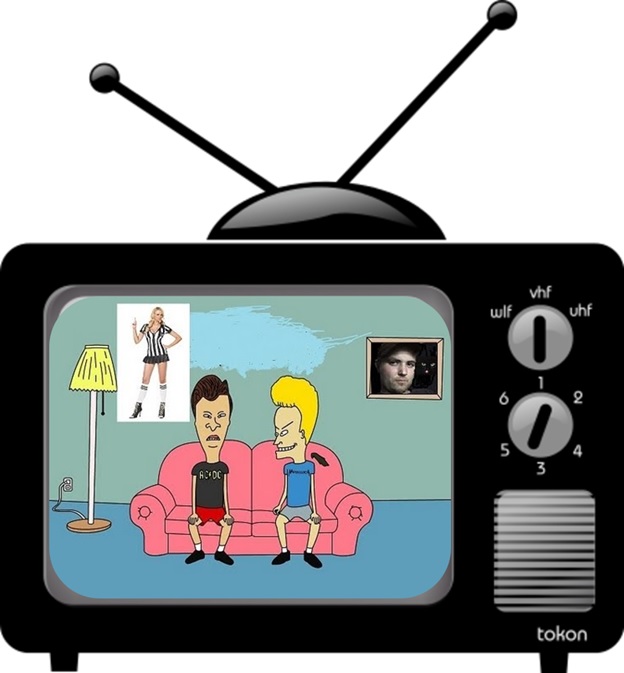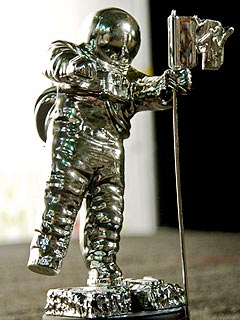
Yesterday, the strategic team at MTV – celebrating the 35th anniversary of the launch of the iconic music television channel – went back to the future. Using the Vh1 Classic cable channel, they’ve done some circuitous rebranding to create (wait for it….) “MTV Classic.”
According to Variety, the “new” channel brings back MTV’s greatest hits, including stalwarts like Total Request Live, MTV Unplugged, and yes, Beavis & Butt-Head. This proves – once again – the power of nostalgia as well as the lasting value of classic franchises. A little generational math tells you that a lot of forty and fiftysomethings will be reliving their video glory years with Pimp My Ride, Daria, and Storytellers.
As an “AOR” programmer when MTV launched in ’81, I distinctly remember the discomfort that comes with a hot new competitor you never saw coming. As record labels began to break their new music on MTV and celebrities showed up in force, it sent shockwaves throughout the radio industry. If you think Pandora or Spotify has disrupted radio during the past several years, the debut of MTV was a much bigger for radio stations that once owned new music discovery. I distinctly remember MTV exec Les Garland speaking at an R&R convention, talking about how this new medium wouldn’t cannibalize radio. I don’t think many of the radio programmers in the audience believed him.
I was fortunate to do a lot of research for MTV in the ‘80s, as well as Vh1 during those exciting years when everyone was glued to these channels. Alas, those were the good old days. Over time, MTV execs discovered that “time spent viewing” wasn’t so great when you simply played three minute videos. As MTV moved to long-form programming, viewership did well, but music images were lost in the process.
 Then the tables turned. The Internet came along in the ’90s and MTV’s hammerlock on music was eroded. And the channel never truly recovered. As Variety’s Oriana Schwindt notes, parent Viacom has been hit hard by declining revenues for nearly two years. Historians will argue how MTV lost its grip on the music franchise despite being the destination.
Then the tables turned. The Internet came along in the ’90s and MTV’s hammerlock on music was eroded. And the channel never truly recovered. As Variety’s Oriana Schwindt notes, parent Viacom has been hit hard by declining revenues for nearly two years. Historians will argue how MTV lost its grip on the music franchise despite being the destination.
This move speaks to the power of nostalgia that helps to explain the success that Classic Rock has enjoyed on the radio these past three decades. But as we’ve also learned along the way, the content has to be stellar or the appeal of the format (or in this case, the channel) is fleeting. For Classic Rock, rock music from the ’60s, ’70s, and ’80s has more than stood the test of time. It has become the soundtrack of TV, movies, and even advertisements.
In the case of MTV, their library of programming goes well beyond a collection of memory-inducing videos by Madonna, Michael Jackson, and Peter Gabriel. Their vaults are loaded with shows that could end up having the appeal of Seinfeld or Cheers reruns. From their Video Music Awards extravaganzas to MTV Unplugged, there’s a rich history with appeal that will transcend the generation that first started watching music television back in the ’80s.
I am often amused by consultants and researchers who pull out their calculators to show me that when most of what we now called Classic Rock was released, it appealed to people who are now north of 55 or even 60 years-old. While that may be chronologically true, the appeal of great pop culture – whether it’s TV shows, music, or films – amplifies the audience, creating an even stronger appeal years or even decades later.
The MTV team may have a hit on their hands by simply repackaging and repurposing content their programmers from decades past conceived, produced, and created.
I wonder whether MTV inventor, Bob Pittman, will be spending some time with MTV Classic.
(And James Cridland, at least I didn’t stoop to using “The Internet killed the video star” as my headline.)
- What To Do If Your Radio Station Goes Through A Midlife Crisis - April 25, 2025
- A 2020 Lesson?It Could All Be Gone In A Flash - April 24, 2025
- How AI Can Give Radio Personalities More…PERSONALITY - April 23, 2025




A lot of good stuff to think about.
Thanks, Robin!
MTV’s early music programming really did smack radio upside the head for a few years. Even here in Detroit, where we were blessed with four AOR’s battling it out for listeners, MTV was where you went for newer music. There were rumblings in the younger end of the baby boomers and the older end of the baby boomlet that with the new decade, there was a lot of great rock music out there that we were not being exposed to by our terrestrial radio stations that seemed content with playing songs 5 – 10 years old for 75% of the time. Mid-period new wave, New Wave Of British Heavy Metal and American Indie rock were some of the sub-genres that the demo were hungry for and if heard on their local AOR were relegated to special shows or that midnight to morning show slot (still loved the ‘RIF Rock Cafe).
Where MTV lost it’s charm (and their more influential, taste making viewers) is when the eclecticism was flushed with the channel going through what we called (in my circle) their “faze period.” They went through their “Michael Jackson/Prince’ period, followed by their “hair metal” and “hip-hop” fazes where there were times where during what was supposed to be their, say, “Morning Video Block,” where instead of an eclectic mix, more than half of the programming time was awarded to one genre.
Also, when the channel debuted, it was not uncommon to look at Billboard and see the MTV playlist having 60 – 80 current songs in rotation. Flash forward a few years and we would have a rotation half of that size with a few select videos getting played 60 – 80 times a week by comparison.
You have mentioned in previous articles how the backlash by the older end of the AOR listenership against this MTV invasion helped inspire the Classic Rock format. Perhaps a line in the sand had to be drawn at that point. Though it didn’t cause a cultural shift the magnitude of “Rock Around the Clock,” even I was shocked to see “Hungry Like the Wolf” at the top of the AOR charts back in 1983.
Kurt, your comments add much perspective to the conversation. Suddenly, the focal point of radio programmers shifted from battling each other to getting their heads around MTV and its impact. Your observations are very much on-point here. Thanks for taking the time and reading our blog.